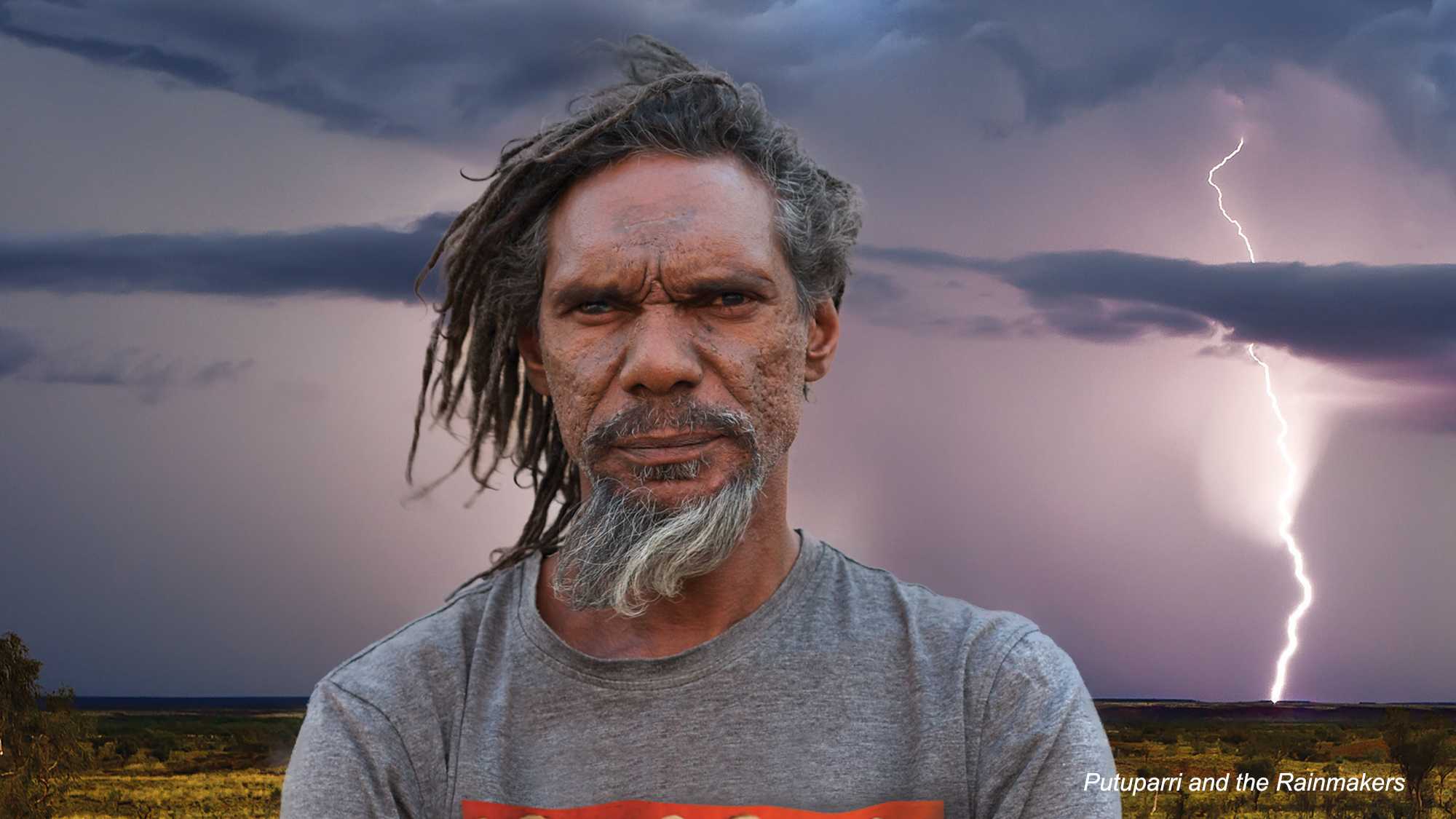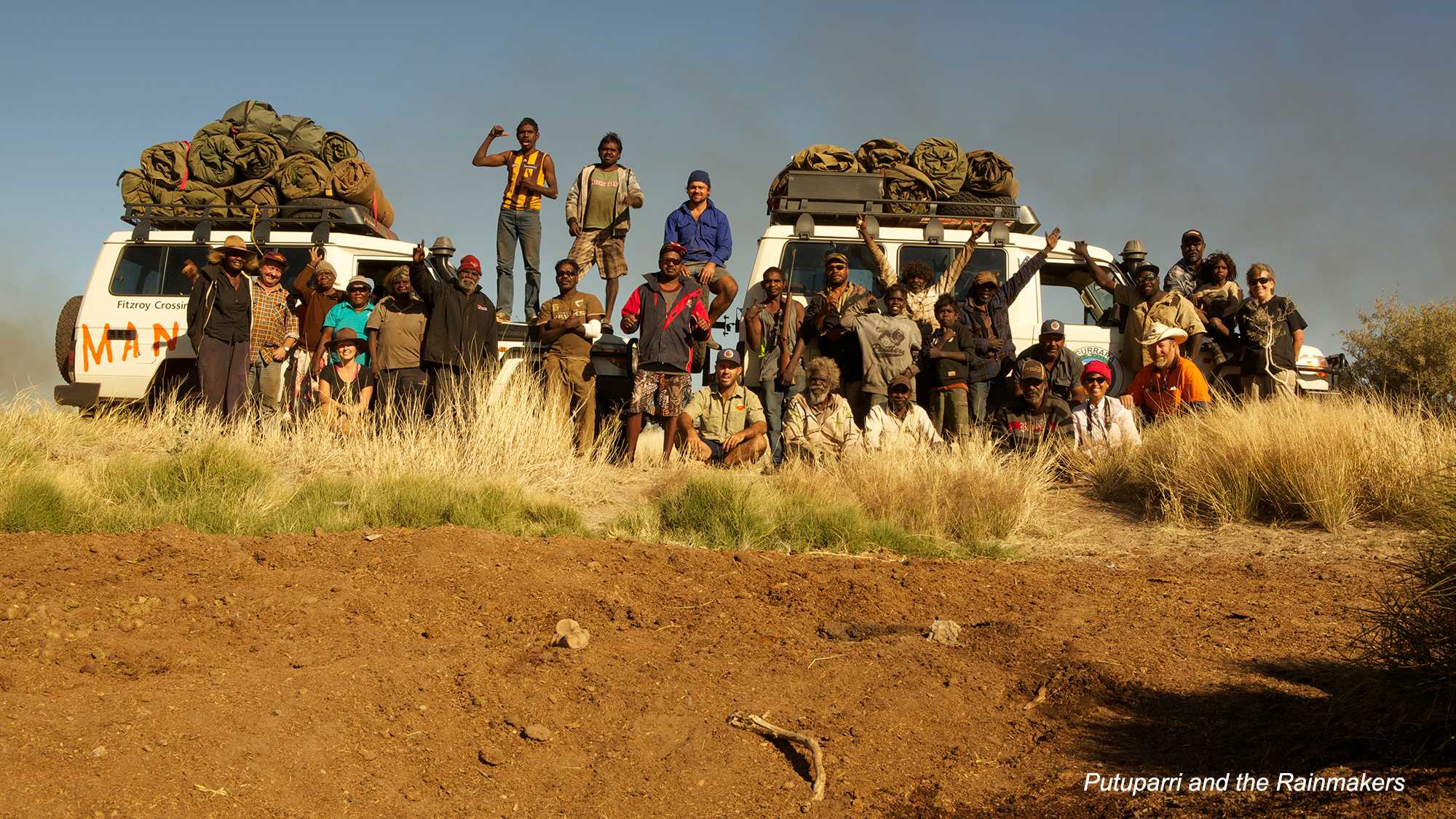An emotional journey to meet the traditional rainmakers of Australia's Great Sandy Desert. The film spans 20 years in the life of Tom "Putuparri" Lawford as he navigates the chasm between his Western upbringing and the need to keep his traditional culture alive.


In this enthralling and ambitious documentary, film-maker Nicole Ma uses the hard-won changes in the life of Tom Lawford to examine the distance between the traditional and modern way of life.
Screened as part of Autumn Events 2016
Putuparri and the Rainmakers 2015
Filmmaker Nicole Ma will introduce her screenings and be present for Q&A sessions at the conclusion of the film.
A beautifully interlaced account of connection between an Indigenous Australian and his community’s contested traditional land, Putuparri and the Rainmakers draws us along on the journey of Wangkatjungka man Tom “Putuparri” Lawford and his family. Based in the tiny Kimberley town of Fitzroy Crossing, and subjected to many of the challenges facing displaced indigenous people, they wend their way back over a period of 20 years to their sacred waterhole at Kurtal in the vast Great Sandy Desert.
In 1994 Lawford took a video camera with him as he accompanied his grandparents and several elders on an expedition to find Kurtal. His footage, as they locate the site, dig into the dry earth to release the spring, then enact a ritual rainmaking, is spellbinding. It was also to play a significant role in a long campaign to claim back traditional land, and serves as ground zero for Nicole Ma’s film, where we see successive return visits. The size of the waterhole and quality of the waters fluctuate dramatically over the years, and as his grandparents grow old, Tom feels increasingly compelled to pass on their values and traditions to his own grandchildren.
“Nicole Ma's rich, engrossing and rewarding documentary gives us a sense of time that operates on many levels. It's about an individual, a culture, a land rights claim and a vision of the past and the future. It's political and personal, serious and light-hearted, and never less than striking to look at.” — Philippa Hawker, Sydney Morning Herald